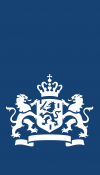
If the last decade has taught us anything about the digital world, it’s that progress and ethics are not inextricably linked. Far from it; those in the world of tech looking to race to the cutting edge will often push ahead with the former, to the detriment of the latter.
These issues are more relevant than ever before; the COVID-19 pandemic has not only accelerated digital progress, but abruptly shoved it over a cliff. According to the World Economic Forum, 86% of United Nations member states used the internet to provide COVID-19 updates.
Around the world, governments have been rushing to migrate municipal services online so that citizens can access essential public tools while reducing social contacts. Amid the urgency of the situation, how can countries ensure that roll-out and delivery of services are always done in an ethical manner?
Even before the pandemic made online access to government services essential, the Netherlands has been consistently ranked as ahead of the curve in this respect. It has the highest rate of internet access among its citizens at 98% as of 2018, almost ten percent higher than the EU average.
The Netherlands: an overview
A 2018 McKinsey report ranked the nation as one of nine “digital front-runners” which boasts higher rates of productivity (which is measured by average GDP in euros per hours worked) and lower rates of unemployment than other central and eastern European countries.
The 2019 EU e-Government benchmark ranked the usability of the Netherlands’ digital government services at 100%, the mobile-friendliness of digital government at 90%, and the adoption of digital government services online at 80%, the latter of which is considerably higher than the EU average of 57%.
Within the Dutch government, the Ministry of the Interior and Kingdom Relations (BZK) is responsible for developing and overseeing these digital services.
One of the largest programs of the BZK is DigID, a centralized, secured digital identity connected to one’s Dutch security number that can be used to access a host of public services ranging from applying for benefits to uploading marriage and birth certificates.
In total, Dutch citizens with a DigID can access 650 different service providers spanning both state and semi-state functions. The service is not mandatory for all citizens but is required to access online versions of government services. Uptake of the service is high: of the Netherlands’ 17.1m people, around 14m (more than 80% of the population) have a DigiD.
A 2019 study by the McKinsey Global Institute shows that increased digital access to government services can boost a country’s economy by between 3% and 13%. This assumes, however, high adoption rates, which research has shown is contingent on high levels of public trust.
Evidently, The Netherlands does not struggle with adoption. The maintenance of public trust, however, is a more complex manner, one that requires concerted efforts to promote ethical practices that will promote trust.
Fostering trust in a distrusting world
Sebastiaan van Lunteren, a project leader of the Digital Government Innovation Budget in this department, told TNW that promoting a “human-centric approach” is key to maintaining this trust.
“For every tool that’s being built, you start by looking at the citizens, at the inhabitants of your nation, and you put them at the center of what you build,” Van Lunteren explained.
Trust, Van Lunteren notes, is essential, and the impact of diminished trust in public institutions can be catastrophic. The rise of COVID-19 misinformation, and the swell of misinformation and disinformation in general, is one of the most troubling side effects of the erosion of public trust.
Some of the ways to promote public trust are quite straightforward: for example, BZK has launched an open data initiative that means much of the code used for digital services, including the Dutch COVID-19 contact tracing app, is open-source and available on GitHub. The choice for open source and an open way of working was very important to meet the criticism from privacy experts and technicians during the start of the project: “If you want to create trust, you have to be transparent.”
Other methods of promoting public trust include the BZK’s digital inclusion strategy, which seeks to ensure that no one is excluded from digital communications. Needlessly complicated jargon is excised from communications with citizens. “The focus is that everybody should be able to join the new digital society,” Lunteren says.
BZK partners with libraries around the country to include digital skills in reading and writing initiatives for those with lower levels of literacy. This strategy aims to ensure all digital government apps and services have the technology needed so that people with disabilities have access.
BZK representatives will also conduct a 30-minute talk at the upcoming TNW2020 conference to discuss digital governance ethics in more detail.
Ensuring that citizens’ data is stored in a centralized, cross-departmental database is important for encouraging use. BZK aims to have digital governance be as seamless as possible, never forcing a citizen to enter the same information more than once.
Having this seamless experience is important for trust because what citizens desire in digital government is mirrored in what they desire from the commercial e-business model. They want similar levels of convenience and ease of use as they get from ‘Big Tech’ firms such as Google and Facebook while also having solid and transparent ethical guidelines.
“They’re right in their request because we live in a society that’s so digitally advanced that this is possible,” Van Lunteren says.
Yet the digital transformation of government will never, Van Lunteren concludes, be able to keep up with the breathless pace at which the business of tech can move, albeit for good reason. For any digital initiatives that are rolled out, they must first trundle through a series of legal and financial checks to ensure compliance.
Reducing bias in AI
Van Lunteren also devotes some of his time to working on adapting policy in order to ensure that human rights are central to the development of new technologies.
Globally, the use of AI in government, particularly with regard to the use of facial recognition in the judicial system, has attracted criticism. Far from being an objective, scientific tool, many AIs do have bias, or unintentionally discriminate because the data shows bias. As a result, they have often been found to discriminate against minorities.
Van Lunteren asks: “How do we stop these algorithms if they’re breaking laws, if they discriminate, or if they do something else that basically violates human rights?” It’s important for regulators to control algorithms, and BZK has developed different instruments to do so, including impact assessments, guidelines, ethical data tools, etc. BZK has partnered with the University of Amsterdam and local government to create the Civic AI Lab, a research lab devoted to researching and promoting applications of AI that promote the economic and social rights of citizens.
“We’re launching a human rights and AI award soon for public projects that develop AI systems that do not harm human rights.”
Technology is everywhere and is rapidly developing — the impact it will have on society is considerable, but still largely unknown. This is a major challenge for those developing technology policies for governments. Van Lunteren says: “You know it is inevitable, as a government, that you are going to have to get everything online. You cannot control this digital world as a government, not as easily as you could control the physical world.”
The digital revolution has upended every facet of human existence. It has created a system where now, it is the world of the internet; the rest of us are just merely living in it. Yet digital government solutions do not have the same ethical problems that the rise of major private tech firms have had. They could repair trust, not break it further.
Want to learn more about digital governance ethics? Jelle Vergburg, a product owner at data.overheid.nl, will be speaking at TNW2020 this week (October 1 & 2). Check out the full schedule here, and if you don’t have a ticket yet, join for free or upgrade to get access to premium sessions, 1:1 networking opportunities with speakers, and more.
Get the TNW newsletter
Get the most important tech news in your inbox each week.






